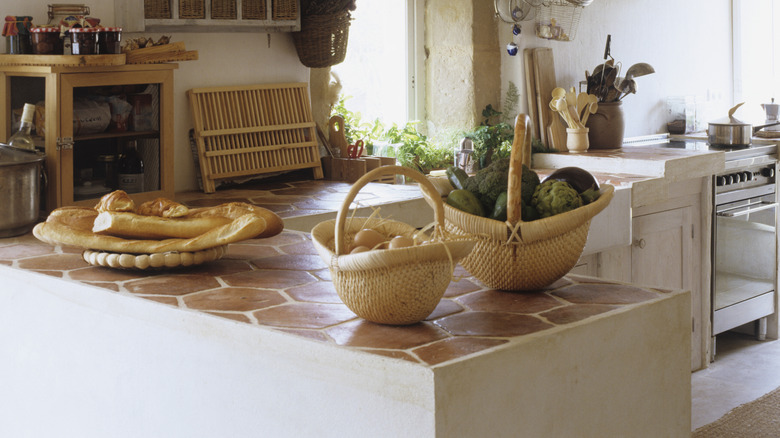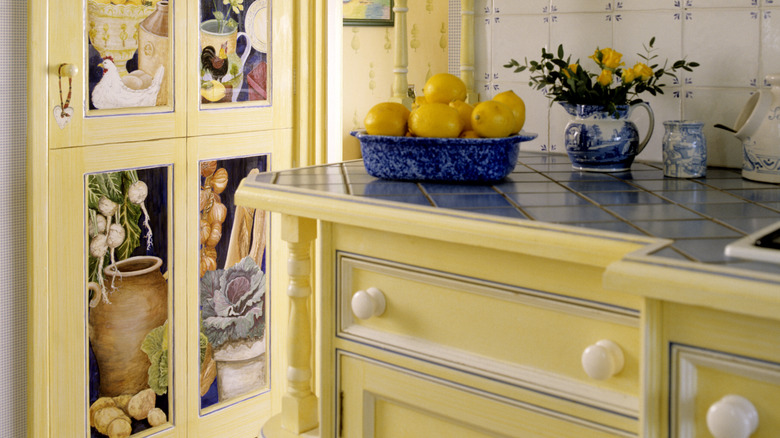Tiled Counters Bring A Chic Mediterranean Style To Your Kitchen
While utilitarian, plain kitchen counters are certainly functional, if you're trying to ditch the once-trendy monochrome kitchen aesthetic, consider opting for a countertop surface with a bit more pizazz. For example, if you want to bring a chic Mediterranean style to your kitchen, try using tile. Since you can theoretically choose every single tile before you install it, this material allows you an incredible level of customization to ensure you find a design that matches your tastes.
Installing any type of tile onto your counters will automatically give the space a more Mediterranean feel. However, if you want to more directly match the style of kitchens in countries like Morocco and Spain, look for tiles with detailed designs or earthen, handmade appearances. Terracotta or zellige tiles are good options for a more neutral look, while intricately crafted, brightly colored majolica tiles can create unique, eye-catching flair. If you need help deciding, make sure to get expert advice on the best tile for your kitchen counters before committing.
When deciding exactly how you want your tile counters to look, you may be tempted to ensure each tile is completely level. However, installing the tiles in a way so that they create an irregular surface can actually add to the cozy, rustic aesthetic. Uneven tiles would be an especially good choice for a kitchen island or as a backsplash.
Delicate-looking tiles are a durable choice
Tile countertops not only look amazing, they're also a sturdy, practical material that can be easy to maintain. Even though tile often looks delicate, it is surprisingly durable — making it a great choice for many kitchens. The most common tile varieties, ceramic and porcelain, are both heat and stain resistant. This makes them great as a finish for counters that see a lot of wear-and-tear, such as near the stove or sink. With that said, the grooves and grout between each tile can easily trap powdery ingredients like flour, so this style of countertop may not be a good choice if you do a lot of baking. Instead, consider a lesser-known kitchen counter material that might better serve your time in the kitchen.
Typically, tile countertops (including the grout) are sealed with a glaze that protects them from stains and discoloration. Therefore, they should only need a quick swipe with a paper towel or a spray of all purpose cleaner to keep them sparkling. The only time you will have to worry about deep cleaning tile counters is when it's time to replace the grout sealant. If the grout is exposed to water and grime, you'll need to scrub it with a mixture of one part bleach to eight parts water. After rinsing away the bleach, scrub the grout again with soapy water before rinsing, drying, and resealing. Cleaning and resealing the grout once every two years or so will ensure your tile countertops stay stunning and sanitary for decades.

